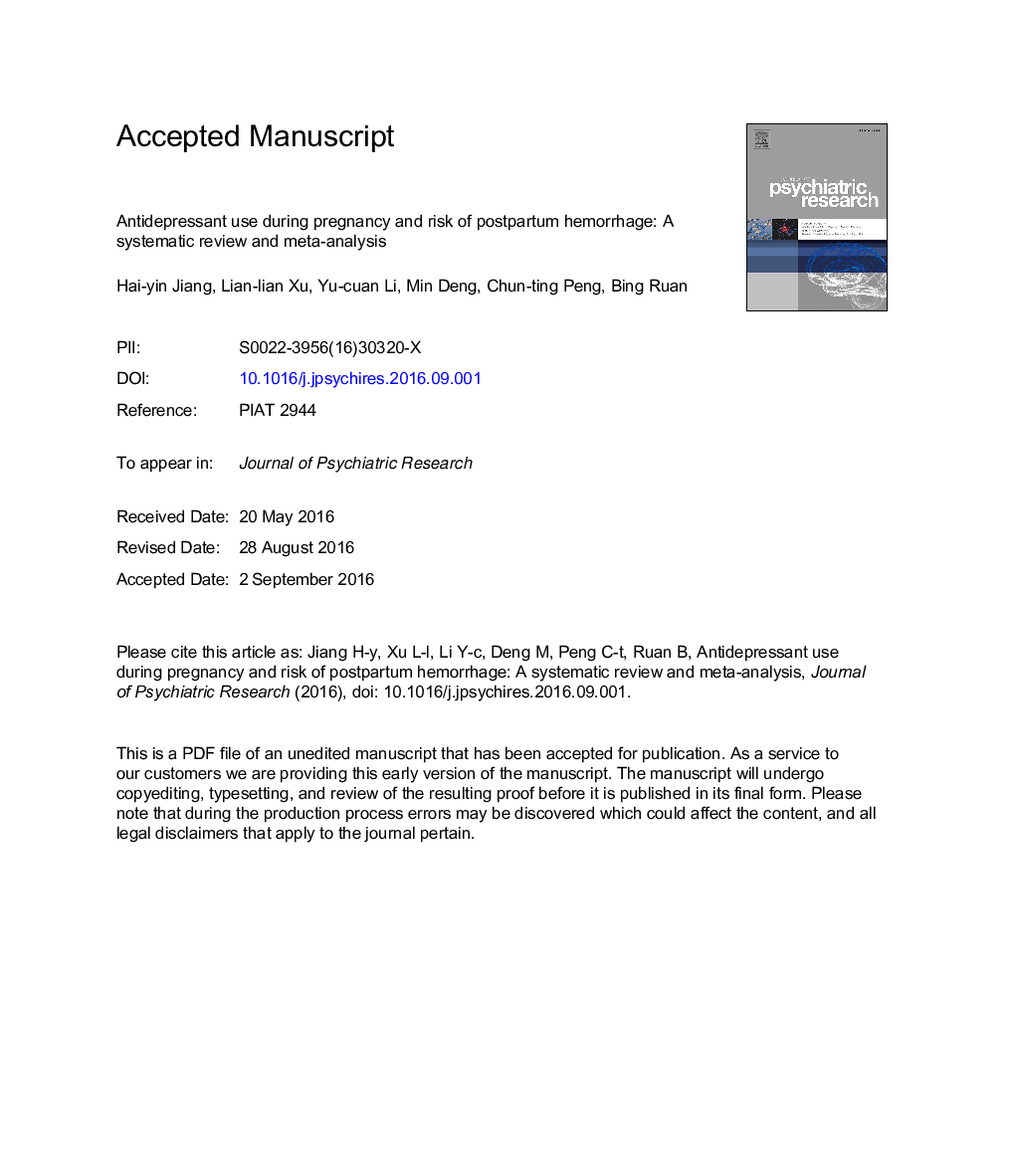| Article ID | Journal | Published Year | Pages | File Type |
|---|---|---|---|---|
| 6799840 | Journal of Psychiatric Research | 2016 | 30 Pages |
Abstract
Evidence about relationship between antidepressant use during pregnancy and the risk of postpartum hemorrhage (PPH) is conflicting. The aim of this meta-analysis was to systematically assess this relationship. To identify relevant studies, we conducted systematic searches in PubMed and Embase of articles published through May 2016. Random-effects models were adopted to estimate overall relative risk. In total, eight studies involving more than 40,000 PPH cases were included in our meta-analysis. After pooling the estimates, the odds for developing PPH were 1.32-fold higher (risk ratio, RRÂ =Â 1.32; 95% confidence interval, CIÂ =Â 1.17-1.48) in antidepressant users compared with individuals who had not taken antidepressants. In subgroup analyses, the associations still exist for women with exposure to non-SRI (RRÂ =Â 1.31, 95% CIÂ =Â 1.1-1.56), SRIs (RRÂ =Â 1.23, 95% CIÂ =Â 1.06-1.44), SSRIs (RRÂ =Â 1.2, 95% CIÂ =Â 1.04-1.38), and SNRIs (RRÂ =Â 1.62, 95% CIÂ =Â 1.41-1.85). Based on exposure window, we found an increased risk of PPH among current (RRÂ =Â 1.37, 95% CIÂ =Â 1.09-1.71) and recent users (RRÂ =Â 1.32, 95% CIÂ =Â 1.15-1.51), but not past users (RRÂ =Â 1.08, 95% CIÂ =Â 0.88-1.31). The findings of this meta-analysis support an increased risk of PPH in women exposure to antidepressant during late gestation.
Related Topics
Life Sciences
Neuroscience
Biological Psychiatry
Authors
Hai-yin Jiang, Lian-lian Xu, Yu-cuan Li, Min Deng, Chun-ting Peng, Bing Ruan,
